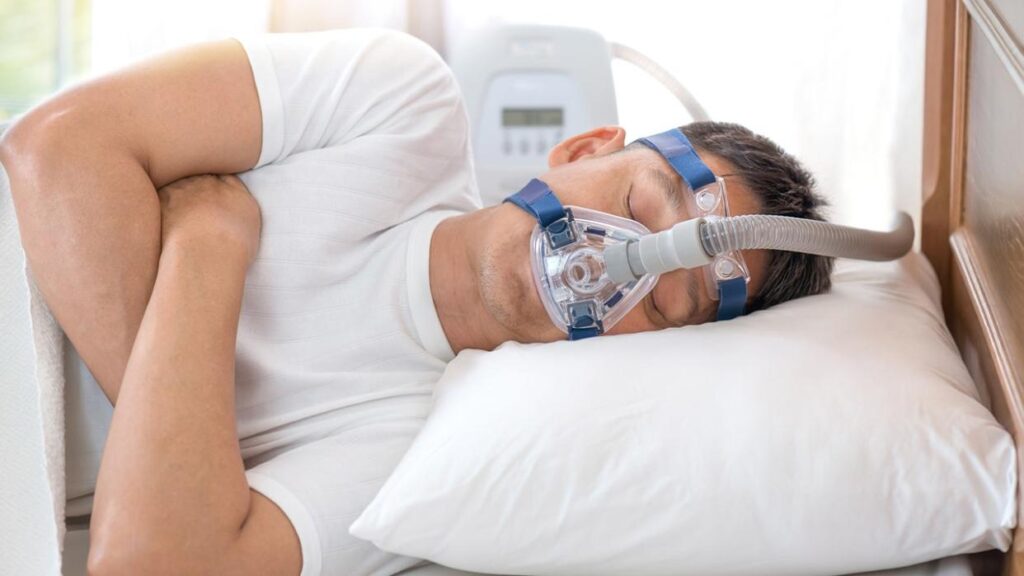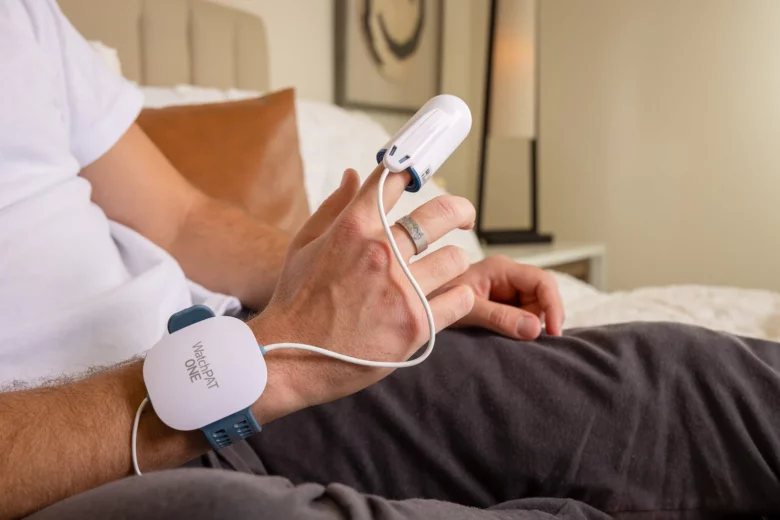Understanding Sleep Studies
Sleep studies, also known as polysomnography, are essential for diagnosing various sleep disorders. These disorders can significantly impact an individual’s quality of life, leading to issues such as excessive daytime sleepiness, mood disturbances, and impaired cognitive function. The primary goal of a sleep study is to monitor and analyse sleep patterns, providing valuable insights into the underlying causes of sleep-related problems. The study typically involves a night spent in a sleep clinic or at home, where various physiological parameters are recorded, including brain activity, eye movements, heart rate, and oxygen levels in the blood. This comprehensive data helps healthcare professionals pinpoint the specific nature of the sleep disorder affecting the patient.
In Sydney, the demand for sleep studies has increased, prompting healthcare providers to offer more accessible and affordable testing options. Bulk-billed sleep studies have emerged as a viable solution for those seeking diagnosis and treatment without incurring substantial out-of-pocket expenses. This increase in availability is particularly important given the rising awareness of sleep health and its critical role in overall well-being. As more people recognise the importance of quality sleep, the healthcare system is adapting to meet the growing need for effective diagnostic tools and treatment plans.
What is a Bulk-Billed Sleep Study?
A bulk-billed sleep study allows patients to undergo testing at little or no cost. This arrangement is made possible through the Australian Medicare system, which covers the expenses associated with certain medical services. When a healthcare provider bulk-bills a service, they directly bill Medicare, eliminating the need for patients to pay upfront. This financial relief can encourage individuals who may have previously postponed seeking help due to cost concerns to take the necessary steps towards improving their sleep health.

Bulk-billed sleep study Sydney provide an essential service for individuals seeking answers to their sleep-related concerns. With the support of Medicare, these studies are more accessible and affordable than ever, ensuring that patients can receive the necessary diagnosis and treatment without financial strain.
Bulk-billed sleep studies typically include a comprehensive assessment of sleep patterns, breathing, and other physiological parameters during sleep. This information is crucial for diagnosing conditions such as obstructive sleep apnoea, insomnia, and restless legs syndrome. Furthermore, the data collected can also assist in tailoring personalised treatment plans, which may involve lifestyle changes, the use of continuous positive airway pressure (CPAP) machines, or cognitive behavioural therapy for insomnia. The holistic approach to treating sleep disorders ensures that patients receive the most effective care based on their unique circumstances.
Eligibility for Bulk-Billing
To qualify for a bulk-billed sleep study in Sydney, patients must meet specific criteria set by Medicare. Generally, this involves being referred by a general practitioner (GP) or a specialist who identifies the need for a sleep study based on the patient’s symptoms and medical history. This referral process is crucial, as it ensures that only those with a genuine need for further investigation are directed towards these diagnostic services.
It is essential for patients to discuss their symptoms with their GP, who can then determine whether a referral for a sleep study is appropriate. Conditions commonly leading to a referral include chronic snoring, excessive daytime sleepiness, and difficulty concentrating. Additionally, patients may also be screened for other risk factors, such as obesity or a family history of sleep disorders, which can further influence the decision to pursue a sleep study. By fostering open communication with healthcare providers, patients can better navigate their options and take proactive steps towards addressing their sleep concerns.
Learn more on: Sleep Apnea Test Melbourne: Early Diagnosis Saves Lives
The Process of a Sleep Study
Undergoing a sleep study may seem daunting, but understanding the process can alleviate anxiety. The procedure typically involves two main types of studies: in-lab polysomnography and home sleep apnoea testing (HSAT).
In-Lab Polysomnography
In-lab polysomnography is conducted in a sleep clinic or hospital. Patients spend the night in a comfortable, controlled environment where they are monitored by trained technicians. During the study, electrodes are placed on the scalp, face, and body to measure brain waves, heart rate, and breathing patterns.
The data collected during an in-lab study provides a comprehensive overview of the patient’s sleep architecture, helping to identify any abnormalities. This type of study is often recommended for individuals with complex sleep disorders or those who may require additional monitoring.
Home Sleep Apnoea Testing (HSAT)
For many patients, home sleep apnoea testing is a convenient alternative to in-lab studies. HSAT involves using a portable device that patients wear at home while they sleep. The device typically measures airflow, oxygen levels, and heart rate, providing valuable information about the patient’s sleep patterns.
While HSAT is less comprehensive than in-lab polysomnography, it is a practical option for those suspected of having obstructive sleep apnoea. Patients can often feel more relaxed in their own environment, which can lead to more natural sleep patterns. Learn more about environment on https://hsa.edu.pk/environmental-health-sciences-and-managment/
Interpreting Sleep Study Results
Once the sleep study is complete, the collected data is analysed by a sleep specialist. The results will reveal critical information about the patient’s sleep quality, duration, and any potential disorders. Understanding these results is crucial for determining the appropriate treatment plan.
Common Findings
Some common findings from sleep studies include:
- Obstructive Sleep Apnoea (OSA): Characterised by repeated episodes of partial or complete airway obstruction during sleep, leading to disrupted sleep and reduced oxygen levels.
- Insomnia: Difficulty falling or staying asleep, often linked to stress, anxiety, or medical conditions.
- Periodic Limb Movement Disorder (PLMD): Involuntary leg movements during sleep, which can disrupt sleep quality.
Next Steps After Diagnosis
After receiving the results, patients will typically have a follow-up appointment with their healthcare provider to discuss the findings and potential treatment options. Treatment may involve lifestyle changes, the use of continuous positive airway pressure (CPAP) machines for OSA, or medications for insomnia.
The Benefits of Bulk-Billed Sleep Studies
Bulk-billed sleep studies offer several advantages, making them an attractive option for many individuals experiencing sleep-related issues. These benefits include financial accessibility, convenience, and comprehensive care.
Financial Accessibility
One of the most significant advantages of bulk-billed sleep studies is the reduced financial burden on patients. With the costs covered by Medicare, individuals can access essential diagnostic services without worrying about out-of-pocket expenses. This accessibility is particularly beneficial for those who may otherwise forgo testing due to financial constraints. To learn more about accessibility click here.
Convenience and Comfort
Bulk-billed sleep studies often provide patients with the option of home testing, which can be more convenient and comfortable. Patients can sleep in their own beds, leading to a more natural sleep experience. Additionally, the ease of scheduling appointments and the availability of local testing facilities make the process less stressful.
Finding a Bulk-Billed Sleep Study Provider in Sydney
For those seeking a bulk-billed sleep study in Sydney, several providers offer these services. It is essential to choose a reputable clinic or hospital that is accredited and staffed by experienced professionals.

Researching Providers
When searching for a bulk-billed sleep study provider, consider the following steps:
- Consult Your GP: Your general practitioner can recommend accredited sleep study providers based on your specific needs and location.
- Check Accreditation: Ensure that the sleep clinic is accredited by relevant Australian health authorities, which guarantees adherence to safety and quality standards.
- Read Reviews: Look for patient reviews and testimonials to gauge the quality of care and service provided by the clinic.
Preparing for Your Appointment
Once you have selected a provider, preparing for your appointment is crucial. This preparation may include:
- Documenting Symptoms: Keep a record of your sleep patterns, including any disturbances or daytime sleepiness, to discuss with your healthcare provider.
- Bringing Medical History: Provide your healthcare provider with a comprehensive medical history, including any medications you are currently taking.
Conclusion
Understanding the process, benefits, and options available for sleep studies empowers individuals to take control of their sleep health. With the right information and support, achieving restful sleep and improved quality of life is within reach for many.

